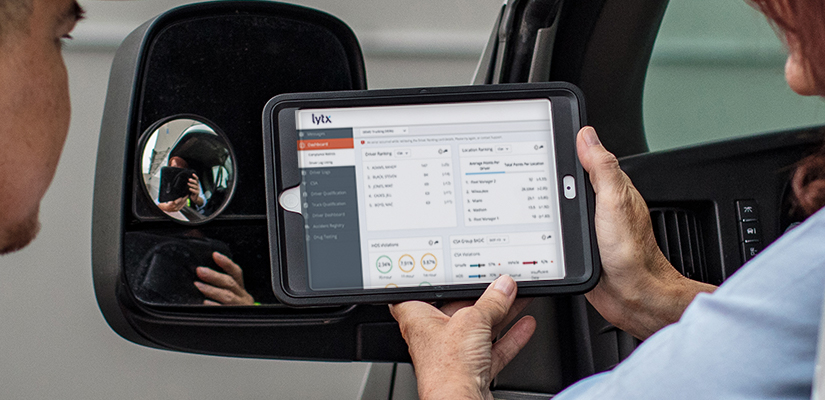ELD Mandate Canada: The Details You Need to Know

The ELD mandate in Canada is designed to help reduce driver fatigue, prevent collisions, and ultimately, increase road safety. Commercial driver fatigue is one of the most common causes of road accidents in Canada, meaning that mandating ELDs, or Electronic Logging Devices, may help to reduce the national road fatality toll.
What is an electronic logging device?
ELDs are placed in vehicles to help monitor driving time. They connect to a vehicle's computer and track driver's service hours to ensure they comply with regulations. Electronic logs will eventually replace Canadian physical logbooks altogether.
Aside from the obvious benefit of helping to track driver’s driving hours, an electronic logbook aids in the reduction of administrative costs for the industry and enforcement costs for provinces and territories. They also result in equal regulations for federally regulated motor carriers, help drivers comply with regulations, and, most importantly, improve commercial drivers' quality of life.
ELD mandate: Canada updates
So, what exactly is changing as a result of the ELD mandate in Canada? Any commercial drivers who follow hours of service regulations will be required, by law, to switch from paper logbooks to ELDs.
Previously, electronic logging devices in Canada were not mandatory, and drivers could use paper logbooks or other methods of monitoring drivers' hours, such as electronic recording devices.
Transport Canada, the federal institution that creates Canadian transportation policies, initially included a two-year transition period to allow fleets to switch to ELDs; however, that plan was abandoned. Now, fleets must complete the transition to electronic logbooks in Canada.
Benefits of Canadian ELD mandates
The goal of the ELD mandate in Canada is to improve the safety of roads by reducing the amount of time drivers spend behind the wheel in one stretch. This will, in turn, reduce driver fatigue and, according to Transport Canada, reduce the risk of fatigue-related accidents by roughly 10%.
Mandating elogs in Canada will come with other benefits, such as increased driver safety, reduced paperwork and operating costs, and more efficient roadside inspections.
Transport Canada also believes that the automation process of recording hours of service will reduce logbook errors and tampering. It is also likely that ELD mandates in Canada will limit unfair competition within the industry by ensuring that everyone adheres to the same regulations.
ELD mandates: Canada vs USA
With cross-border travel between Canada and the USA being essential for some businesses to operate, it's understandable that you might be wondering if the new mandate will differ from mandates in America.
Luckily, Canada had the foresight to match its ELD mandate with the US laws, meaning cross-border operations will not be majorly affected. There are some differences, but these are to do with ELD vendors. This means fleet operators will not need to dramatically alter their practices when they cross the border.
The main difference between the mandate for an elog in Canada versus the US mandate is that electronic logbooks in Canada are required to be certified by a third party. In America, companies that manufacture ELDs are able to certify their own devices.
This means that fleet managers with operations in Canada must use third-party certified ELD providers to ensure they meet the new mandate's strict guidelines.
How can Lytx help?
As with any new regulations, the new ELD Canada mandate may be difficult to understand fully at a glance. Without a thorough understanding, your fleet may fail to comply with the mandate. With more than one million drivers protected around the world, Lytx is experienced in helping thousands of fleets improve safety and adhere to compliance standards. Lytx offers a variety of customizable compliance solutions through our partnerships that can help you prepare for the new mandate for electronic logs in Canada.
For more information on Canada's new ELD mandate and how it might affect your fleet, contact Lytx today.
